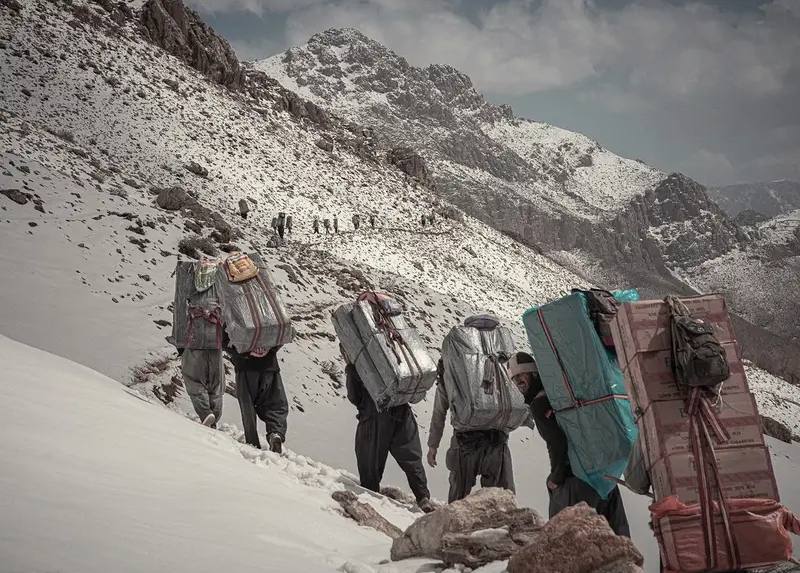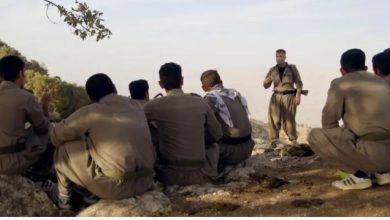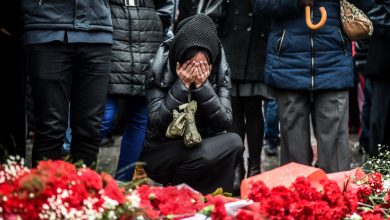Regional underdevelopment is a serious challenge in many countries worldwide, including Iran. In multi-ethnic societies, the formation of stable national unity requires the realization of social, economic, and political justice for all segments of society and all regions. In the absence of such justice, certain groups within society may gradually develop feelings of isolation and neglect. In this context, the Kurdish-speaking regions of the country, with a long history of economic problems, weak infrastructure, and social issues, face high unemployment rates and relative deprivation, especially compared to central regions. This situation has, at times, contributed to a degree of dissatisfaction among a segment of the local community.
Examining Economic Realities in Kurdish-Speaking Regions
Kurdish-speaking regions in western and northwestern Iran—including provinces such as Kurdistan, Kermanshah, Ilam, and parts of West Azerbaijan—have suffered from high unemployment rates, a lack of adequate industrial infrastructure, inefficient agriculture, and weak public services over recent decades. Many human development indicators, such as income levels, education, health, and industrial investment, are lower than the national average in these areas. For example, some Kurdish-speaking cities experience double-digit unemployment rates, and a large portion of young people turn to informal jobs or migration to metropolises due to a lack of suitable employment opportunities.
The lack of effective support for agriculture, which is one of the economic mainstays of these regions, and the absence of processing industries or suitable markets for local products have exacerbated this trend.
The deprivation in these regions stems from multiple reasons, including:
- Location in mountainous border areas with difficult access to markets.
- The impacts of the Iran-Iraq War, which severely damaged the infrastructure of the western provinces.
- Lack of government and private investment due to security and administrative reasons.
- Weak regional planning for balanced development.
These conditions continuously reproduce poverty and inequality; poverty not only in an economic sense but also in the form of a feeling of “structural neglect” and “institutional discrimination,” which has profound long-term social consequences.
The Development Gap and the Formation of a Sense of Discrimination
One of the significant outcomes of chronic underdevelopment is the emergence of a feeling of discrimination and neglect among local people. Underdevelopment is not merely an economic problem; rather, it is a crucial breeding ground for social and identity divides. This feeling, more than being necessarily a result of explicit discriminatory policymaking, stems from the “perception of inequality” in benefiting from resources, opportunities, and the central government’s attention. In ethnic regions, such as the Kurdish-speaking areas, this dissatisfaction often becomes intertwined with “ethnic identity” and “cultural identity,” acting in a compounded manner; consequently, economic dissatisfaction can translate into political or cultural discontent.
Kurdish Armed Groups’ Opportunism: Exploiting the Development and Social Vacuum
In such circumstances, Kurdish armed groups—both those based outside the borders and those engaged in scattered activities internally—operate precisely within this social context, striving to leverage economic and social grievances to recruit members, legitimize their discourse, and expand their influence.
By accurately understanding local grievances and emphasizing deprivation and development failures, they attempt to present themselves not merely as armed groups but as “defenders of the rights of the Kurdish people,” seeking to bridge the trust gap between the people and the government. The strategy of these groups typically involves three phases:
- Representing deprivations and discriminations within human rights and ethnic discourses.
- Attracting disaffected youth with promises of justice, participation, or even ethnic liberation.
- Establishing a social base, however small, by relying on local economic and cultural problems.
The reality is that although most Kurdish people generally do not gravitate towards these groups, do not condone armed methods, and oppose their violent approaches, in the absence of balanced and sustainable development, and if current conditions persist, there is a possibility that a segment of society, especially unemployed youth, could be drawn to these groups. The lower the economic conditions, public services, education, political participation, and sense of social security, the more room these groups have to maneuver. The continuation of this issue not only threatens regional security but will also deepen social divisions and distrust.
Security Management Versus a Development-Oriented Approach: Which Path Is More Realistic?
The solution to these problems is not solely security-oriented. Although confronting armed groups is necessary within the framework of national security, it should not be forgotten that the roots of economic, cultural, and social dissatisfaction cannot be treated solely with security tools.
Realism dictates that instead of denying the problems, policies should be adopted with a development-oriented perspective and an understanding of local contexts. Such policies should help address structural discrimination, strengthen investment in deprived areas, create jobs, foster social and political participation, and revive a sense of national belonging. Global experience—from Iraq to Turkey and even African countries—has shown that the most realistic approach is a combination of maintaining security alongside implementing targeted, balanced, and participatory development. This means:
- Special focus on economic, industrial, and agricultural infrastructure in Kurdish-speaking regions.
- Improving the quality of education and health to reduce the human development gap.
- Increasing the role of local people in regional decision-making.
- Strengthening local media and cultural institutions to reinforce national identity within the framework of cultural diversity.
Conclusion
Economic and social dissatisfaction in Kurdish-speaking regions has emerged against a backdrop of historical underdevelopment and weak regional policies. These conditions, while not necessarily leading to divergence, can, in the absence of proper foresight, become a suitable ground for the formation and influence of armed groups and the rise of divergent tendencies and discourses. These groups exploit real problems to inject exaggerated slogans into a segment of society. A purely security-focused approach, while it may prevent a short-term crisis, cannot guarantee long-term stability.
The only realistic way to counter this trend is to implement a strategy of sustainable, balanced, and participatory development, without denying the problems or ignoring security concerns, and by addressing the social and economic roots of the crisis for their fundamental resolution. Consequently, balanced development, strengthening mutual trust between the people and the government, and reducing the feeling of discrimination are the most effective solutions to prevent the aforementioned problems.
Source: Shargh Newspaper






